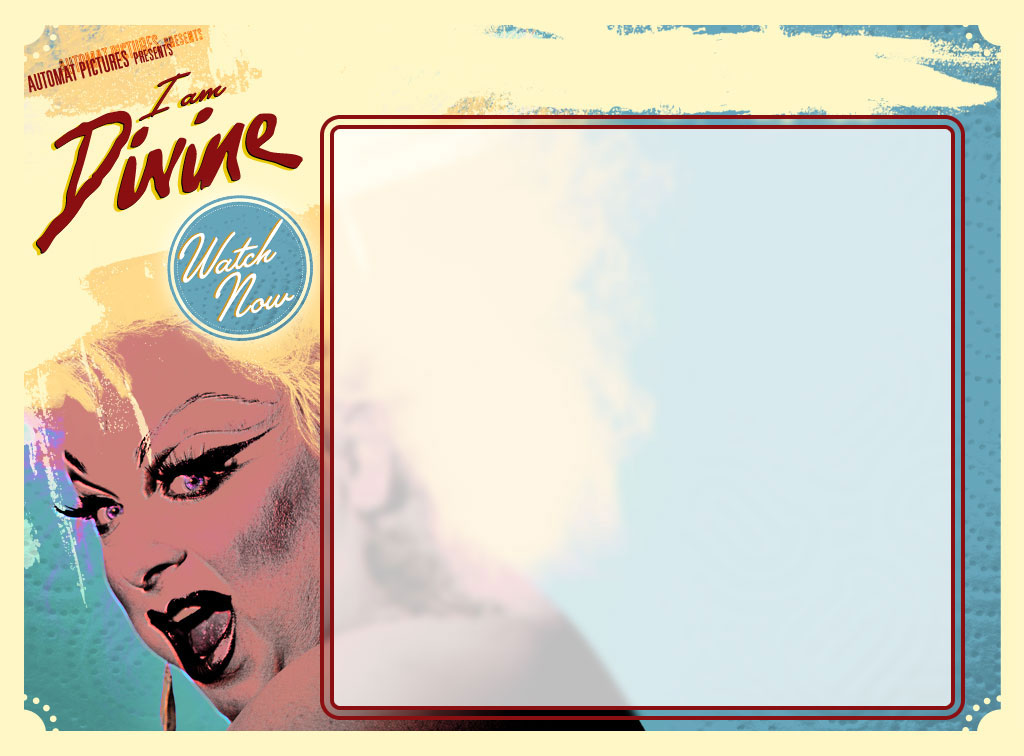
THE MOVIE | SYNOPSIS | DIRECTOR'S STATEMENT | THE FILMMAKERS
Director's Statement
Before the video revolution of the 1980s, it was damn near impossible for a suburban kid like myself to see the kinds of movies I read about in Danny Peary's Cult Movies book. One of the titles Peary wrote about was Pink Flamingos, a movie so demented, depraved and disgusting I became obsessed with finding out everything I could about the people who made it.
Even before seeing any of his films, John Waters became my personal god, and I devoured his autobiographical books Shock Value and Crackpot. I was still a closeted teenager with no tangible connections to gay culture, so John's sensibility helped to lead me down a path of embracing my own difference. John's relationship with his leading lady Divine was also inspiring. Their friendship and artistic collaboration gave me hope that I might someday find like-minded people and be able to express my true nature like they did.
In 1988, I was in my first year of college and finally getting to see all of Divine and John Waters' movies. Each film was more jaw-dropping than the next and Divine's performances were fearless and courageous. Just after the release of Hairspray, John and Divine's breakthrough success, I opened the newspaper and saw that Divine had died. It seemed so cruel and unfair that after receiving the best reviews of his career and on the verge of mainstream acceptance, he wouldn't be able to enjoy the fruits of his labor.
Years later, I had the pleasure of collaborating with John Waters when he appeared in my film Spine Tingler! The William Castle Story. In 2007, I produced You Can't Stop the Beat: The Long Journey of Hairspray for the DVD of the 2007 remake, which featured a section about the original film. Getting to meet all of John's collaborators on Hairspray gave me the idea to mount a tribute to Divine that would deepen our appreciation for this iconic performer and ensure his legacy for a new generation. A documentary could honor Divine in just the way he always craved—as a serious artist and immortal star.
Like the John Waters protagonists he portrayed in numerous films, Divine was the ultimate outsider. Spitting in the face of the status quos of body image, gender identity, sexuality, and preconceived notions of beauty, Divine still succeeded in becoming an internationally recognized recording artist and screen icon. He gives courage to anyone who's ever been mocked, ridiculed, and ostracized, and gives us all hope that anything's possible.
His story is about fame. It's about the quest for the spotlight and artistic respect. And in the end, it's a story of a man estranged from his family and their beautiful reunion. It's also the ultimate "it gets better" story about a bullied fat kid who had the last laugh on his tormentors. With this regard for Divine's emotional complexities comes I Am Divine, which will celebrate the Most Beautiful Woman in the World's life and art.